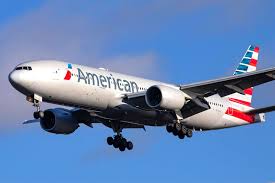According to an executive at the world’s largest airline association, Nigeria is withholding $450 million in revenue generated by international carriers operating in the country.
As the country grapples with a chronic dollar shortage, Africa’s largest economy has restricted access to foreign cash for imports, and investors trying to repatriate gains.
Kamal Al Awadhi, Vice President of the International Air Transport Association for Africa and the Middle East, described talks with Nigerian officials to release the funds as a “hectic ride.”
On the eve of IATA’s annual meeting of airline leaders in Doha this week, he told reporters, “We keep chipping away and hoping that it clicks that this is going to affect the country down the road.”
Nigerian officials, according to Al Awadhi, a former CEO of Kuwait Airways, blamed the foreign currency scarcity for the airline’s failure to repatriate money.
A request for comment from the Nigerian Central Bank was not immediately returned.
Nigeria has already restricted foreign airline income before eventually repatriating it.
IATA has undertaken two rounds of conversations with Nigerian officials, notably the Central Bank, who, according to Al Awadhi, is “unresponsive” to the release of cash.
Another round of negotiations between IATA and Nigerian officials is likely to begin soon, according to the airline lobby group.
“Hopefully, we can come up with a solution where it starts to go down (but) I doubt it will be paid all at once,” Al Awadhi added.
According to the International Air Transport Association (IATA), $1 billion in income belonging to foreign airlines is being withheld across Africa. Nigeria is the only country where the value of blocked cash has increased.
The $450 million withheld in May was 12.5 percent greater than the previous month, making it the greatest amount withheld by any African country.
Algeria, Ethiopia, and Zimbabwe, who together withheld $271 million from foreign airlines, made a little payment in May to settle their debts. IATA said that Eritrea’s budget remained constant at $75 million.




















